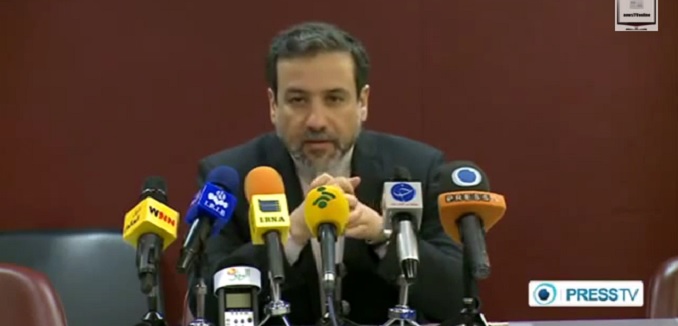The Wall Street Journal revealed on Friday that the United States is considering reopening a bilateral diplomatic channel with Iran – through which negotiations would be conducted by what the outlet described as a “secret” team:
The White House secretly used this bilateral track last year to reach an interim deal with Iran in November that froze parts of its nuclear activities in return for a temporary easing of Western economic sanctions.
The stealth American team was led by Deputy Secretary of State William Burns and Jake Sullivan, national security adviser for Vice President Joe Biden. Their meetings with Iranian negotiators clandestinely took place in Oman, New York and Geneva, without the knowledge of the U.S.’s closest Middle East allies including Israel and Saudi Arabia.
The news was sourced to both American and European officials “involved in the diplomacy” surrounding Iran’s atomic program. The news may deepen the quite open concerns of American allies in the Middle East regarding Washington’s intentions, just a week after Secretary of Defense Chuck Hagel had been dispatched to reassure Riyadh and Jerusalem that U.S. diplomats would not accept a deal that left the Iranians with the ability to construct nuclear weapons.
Circumventing the current model of multilateral negotiations between the P5+1 global powers and Iran would among other things freeze out France and Britain, and observers are likely to note that French Foreign Minister Laurent Fabius is widely assumed to have blocked an interim deal last November due to what Paris considered unacceptably pro-Iranian terms regarding the country’s plutonium-producing Arak reactor.
Meanwhile the Iranians continue to flatly refuse to discuss rolling back the country’s ballistic missile program, with Iranian Deputy Foreign Minister Abbas Araqchi last week reiterating the country’s repeatedly emphasized stance:
“The Group 5+1 (the US, Russia, China, Britain and France plus Germany) countries insist on negotiations over the missile program (of Iran) due to its inclusion in the (previous UN Security Council) resolutions (against Iran but) we have stated to them that our country’s defense systems are not negotiable,” Araqchi said, addressing a forum of the Islamic Revolution Guards Corps (IRGC) political officials in Tehran on Wednesday.
“We have announced it very clearly and explicitly and we have never allowed them to start talks about our defense systems and won’t allow them to do so to the end (of the talks with the world powers),” he stressed.
Obama administration officials had been explicit in telling lawmakers and the public that Iran would be forced to address its international obligations to halt ballistic missile development in the context of comprehensive negotiations, but have in recent days been telling reporters that they no longer have a “checklist” that Iran will be forced to meet, but rather a “package of the combination of elements.’
[Photo: NewsTVonline / YouTube]




